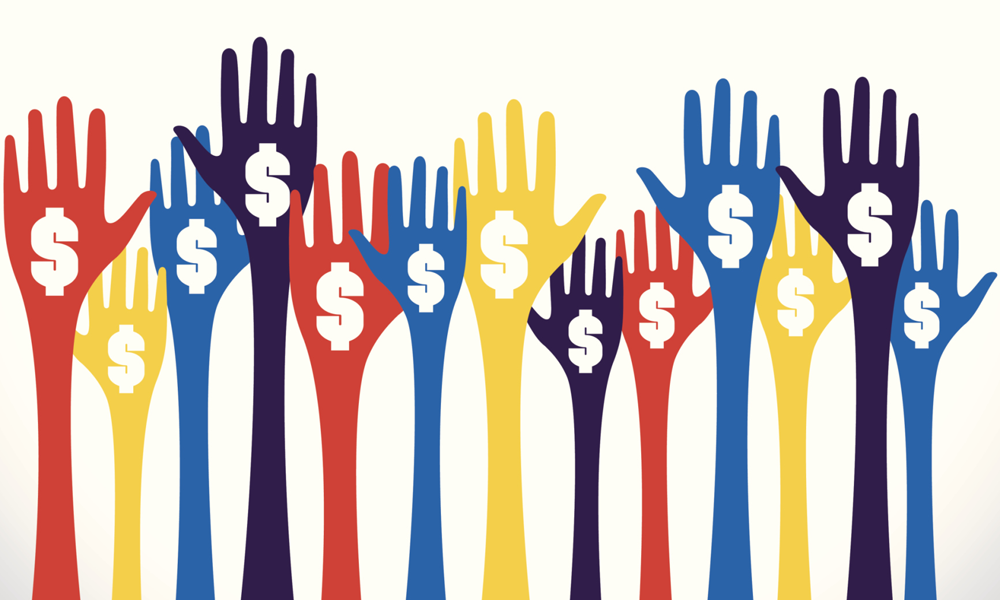
Study: In Charitable Giving, Middle Class Digs Deeper Than the Wealthy
The income disparity in America is accompanied by a charitable giving disparity, according to a new study.
The income disparity in America is accompanied by a giving disparity: According to a Chronicle of Philanthropy analysis of IRS data, the wealthy give a smaller share of their income to charity than do members of the middle class.
The Great Recession and the growing income gap between the wealthy and middle-class Americans have created a surprising “generosity gap” in the nation’s population. According to new analysis of IRS data by the Chronicle of Philanthropy [login required], the wealthiest Americans—defined as individuals who earned $200,000 or more—reduced the share of their income that they gave to charity by 4.6 percent between 2006 and 2012.
On the other hand, Americans who earned less than $100,000, a category that includes lower- and middle-class families with two working adults, donated 4.5 percent more of their income.
Many nonprofit leaders interviewed for the report believed the loyalty of the less-wealthy helped their organizations survive through the economic downtown.
“It hits closer to home,” Tami Phillips, chief development officer at the Midnight Mission, a Los Angeles shelter, told the Chronicle. “Any day, they too could become homeless.”
Despite the trend in share-of-income donated, the total dollars donated by wealthy Americans from 2006 to 2012 increased by $4.6 billion, for a total of $77.5 billion. Members of the lower and middle class gave $57.3 billion, the analysis found.
“While the richest Americans didn’t increase their share of giving as much as others did, fundraisers will continue to count on the wealthy because their ranks are growing,” the authors wrote. “Americans earning $200,000 or more in 2012 totaled 4.8 million, a million more than in 2006.”
Regional Impact
The Chronicle’s analysis also found that 36 of the 50 largest cities in the U.S. experienced declines in share of giving between 2006 and 2012. Here are some of the hardest-hit metro areas, in terms of the drop in average giving rate:
| Rank (out of 50) | Metro area | Giving rate, 2012 | Change in giving since 2006 |
| 27 | Washington, DC | 2.8 percent | -9.5 percent |
| 28 | Los Angeles | 2.8 percent | -9.5 percent |
| 37 | Minneapolis-St. Paul | 2.6 percent | -9.4 percent |
| 41 | Philadelphia | 2.5 percent | -10.3 percent |
| 46 | Buffalo-Niagra Falls, NY | 2.3 percent | -10.6 percent |
Source: Chronicle of Philanthropy
Meanwhile, Las Vegas was the only city to see a double-digit gain, with a 14.9 percent increase in its giving rate, which was 2.8 percent in 2012. The most generous metro areas were Salt Lake City (5.4 percent) and Memphis (5.1 percent).
(designaart/ThinkStock)






Comments